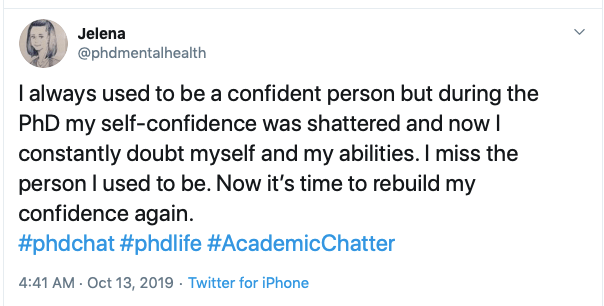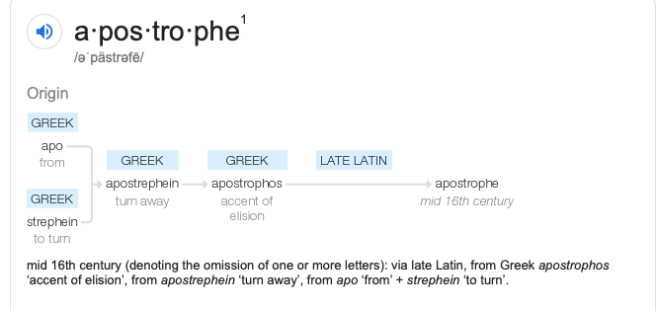Dr. Eva Lantsoght has created a blog focused on “the process of doing a PhD,” among other topics (including, get this, reinforced concrete), and about a year ago, she invited me to write a piece for her “How I Work” series.
Writing this short piece allowed me to think about what my PhD means to me. As someone who chose what is now referred to as an “alt-ac” path, I do ponder my life choices at times, and wonder if earning this degree was worth it.
I’m happy to say that it was, but not for any of the reasons I would have guessed.
Was it worth it?
I get asked every now and then if earning the doctorate was worth it. If I could do it all over again, would I?
That’s a tough question to answer.
On the one hand, the actual act of earning the PhD is not something I would do again for any amount of money. You could promise me my own private island in the Bahamas with a never-ending supply of Nutella in exchange for the degree, and still I would say no.
If you’re curious as to why, it’s because the entire process of earning a doctorate* can be summed up with this. This man is ostensibly describing what it’s like to serve as a committee member for a student’s dissertation. (For those not in academia: doctorates in the humanities require each student to have a Chairperson, known as the first reader, and two additional professors serving as readers two and three. This team is, in theory, supposed to guide you and support you as you write your dissertation, and ultimately help you produce worthy scholarship.)
Read the first two points of his position very carefully.

Got it? Do you see what he did there?
He is essentially saying, “First, if/when your committee members make suggestions, take them.”
Then, he says, “Second, don’t just take their suggestions blindly! After all, this is your dissertation.”
Welcome to the hell that was my dissertation process. We’re talking about four years of “Think for yourself! But, do as you’re told. But, think for yourself! But do as you’re told.”
I suppose in theory the process should work just fine. Your committee gives you guidance, you consider it, you implement the changes that make sense to you and advance your work, and you thoughtfully decline to make other changes that don’t, perhaps in conversation with your committee members where they are so proud of your demonstrated ability to . . . HAHAHAHAHA.
Oh, it so does not work that way. I spent years with my committee members doing number 1: they marked up my chapters and I was expected to make their changes, period, full stop, end of sentence.
Then, I would meet with my advisor to discuss any changes I had opted not to make (which weren’t many, if I’m honest. For the most part, my committee’s feedback was sound; but there were times when I respectfully disagreed and had this crazy idea that that was acceptable), and she would scold me for disrespecting the time and expertise that my committee had extended . . . and then turn right around and scold me for not thinking for myself!
Imagine doing this for four straight years. No amount of Nutella could make this productive.
I’m not alone
For a long time, I thought that the problem was within my institution, but the more I engaged with others, the more I saw that my experience was not unique.
Take a few minutes to scroll through Twitter, and you’ll see countless posts about earning a PhD was an overwhelmingly negative endeavor.
Recently, I read this. I immediately understood exactly what she meant. So did a lot of other people, judging by the number of responses she got:

Also, this request for help and support. Again, the stress that this person is feeling is not unique to them.

The #withaphd community online overwhelmingly echoes such sentiments, ranging from “what did I get myself into” to “this is taking the kind of toll on my mental health that is making me seriously considering closing my laptop and walking away forever.”
What’s the upside?
So, after the years of stress and frustration that culminates in a degree that not only does not guarantee a job of any kind, but potentially makes me overqualified for many jobs, do I regret it?
Honestly, no. Of course, I think the process needs to change, in a large-scale way. I hate how much I inwardly cringe when I hear someone excitedly saying that they got into grad school or are considering a PhD. I want to tell them all to run, fast, in the other direction.
I want to tell them that, if there is anything they can conceive of themselves doing with the next 8-10 years of their lives, then they should do that thing instead, whatever it is.
But I do regret the path I chose?
I certainly don’t regret the confidence I have now with my abilities. And I don’t mean that I think I’m any smarter or more able to write or teach writing than I was before I went to graduate school. I’m talking about that inner knowledge that yes, I can kick some serious butt in the academic and business worlds. It’s the kind of knowledge of self-worth that shines through unsaid.
Once I was talking with a colleague who said that his daughter competes in dead-lift competitions, and can lift some extraordinary amount of weight. On the outside, you might not look at this petite woman and think she could do something so badass.
But she knows. And that makes all the difference with how she carries herself throughout each day.
That inner knowledge of her badassness shines through in everything that she does.
That’s how I feel about earning this degree
Earning my PhD was not a difficult physical endeavor. There are people who struggle through much more difficult experiences in a whole variety of ways. But this isn’t a competition.
The result is that I hold dear the simple knowledge that I know, despite anything my committee or anyone else may think, that I am worthy, that I am smart, that my propensity for kindness and compassion are strengths, not weaknesses, and that I know that I can set a major goal for myself and see it through, no matter what.
That is worth everything.
Feel free to put my innter-badassness to work for you. Reach out for a quote on content writing for your next blog or project.
*I restrict my critique to the study of humanities; I understand that degrees in the sciences might be a bit different, and by different, I mean better. I sure hope so.

 When it comes to whether or not to use “affect” or “effect” there’s a rule, and then there’s when to break the rule.
When it comes to whether or not to use “affect” or “effect” there’s a rule, and then there’s when to break the rule. University’s Newsroom for my latest piece,
University’s Newsroom for my latest piece, 



 I’ve had the privilege to do some copywriting for Nathan Yates at
I’ve had the privilege to do some copywriting for Nathan Yates at 
